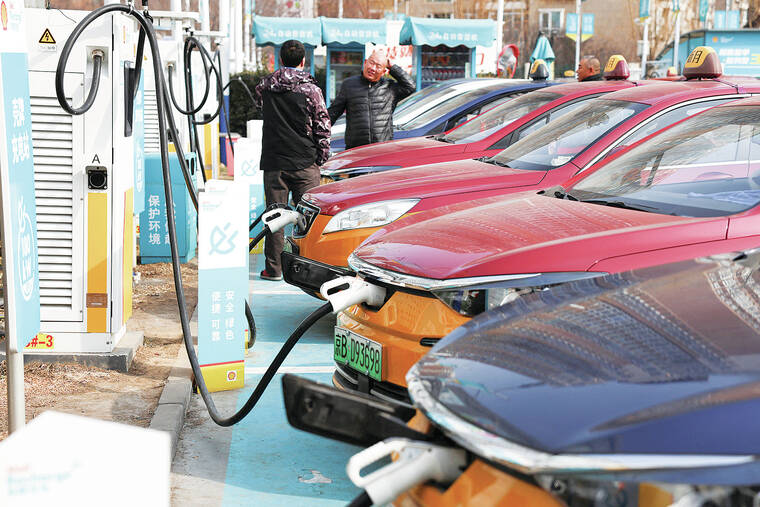Biden hikes tariffs on Chinese EVs, computer chips, medical products


WASHINGTON — U.S. President Joe Biden on Tuesday unveiled steep tariff increases on an array of Chinese imports including electric vehicle (EV) batteries, computer chips and medical products, risking an election-year standoff with Beijing as he woos American voters who give his economic policies low marks.
“American workers can out-work and out-compete anyone as long as the competition is fair, but for too long it hasn’t been fair,” Biden said during a speech in the White House Rose Garden before unions and companies. “We’re not going to let China flood our market.”
ADVERTISING
China immediately vowed retaliation. Its commerce ministry said Beijing was opposed to the U.S. tariff hikes and would take measures to defend its interests.
Biden will keep tariffs put in place by his Republican predecessor Donald Trump while ratcheting up others, including a quadrupling of EV duties to over 100% and doubling the duties on semiconductor tariffs to 50%.
The new measures affect $18 billion in imported Chinese goods including steel and aluminum, semiconductors, electric vehicles, critical minerals, solar cells and cranes, the White House said. The EV figure, while headline-grabbing, may have more political than practical impact in the U.S., which imports very few Chinese EVs.
The announcement confirmed earlier Reuters reporting.
The United States imported $427 billion in goods from China in 2023 and exported $148 billion to the world’s No. 2 economy, according to the U.S. Census Bureau, a trade gap that has persisted for decades and become an ever more sensitive subject in Washington.
U.S. Trade Representative Katherine Tai said the revised tariffs were justified because China was stealing U.S. intellectual property. But Tai recommended tariff exclusions for hundreds of industrial machinery import categories from China, including 19 for solar product manufacturing equipment.






